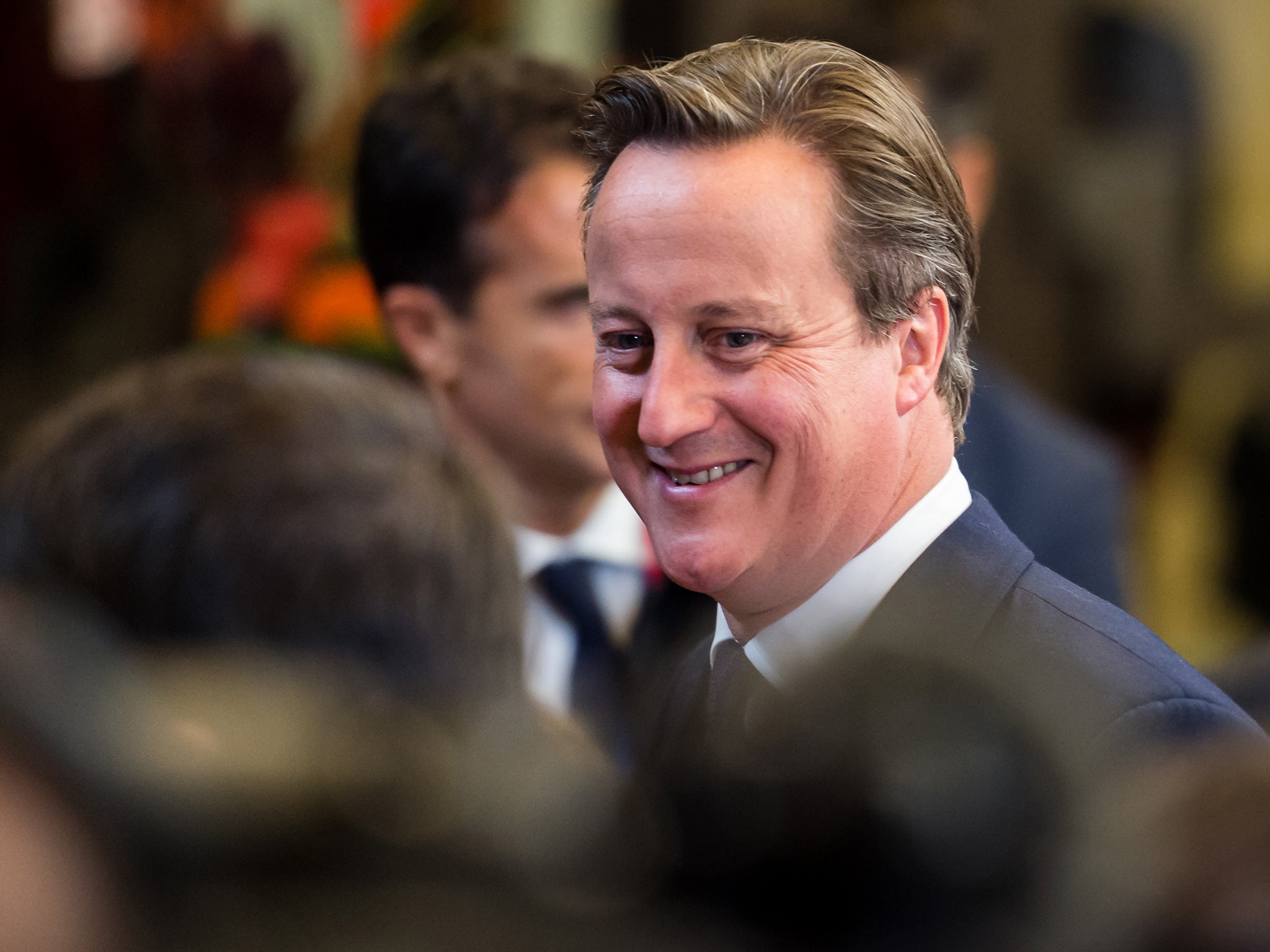Tories undermining global fight against climate change, say leading figures
Tories have drastically cut subsidies for wind and solar power and ended support for energy efficiency in homes

Your support helps us to tell the story
From reproductive rights to climate change to Big Tech, The Independent is on the ground when the story is developing. Whether it's investigating the financials of Elon Musk's pro-Trump PAC or producing our latest documentary, 'The A Word', which shines a light on the American women fighting for reproductive rights, we know how important it is to parse out the facts from the messaging.
At such a critical moment in US history, we need reporters on the ground. Your donation allows us to keep sending journalists to speak to both sides of the story.
The Independent is trusted by Americans across the entire political spectrum. And unlike many other quality news outlets, we choose not to lock Americans out of our reporting and analysis with paywalls. We believe quality journalism should be available to everyone, paid for by those who can afford it.
Your support makes all the difference.Britain’s reputation on the environment has suffered so badly under the new Conservative government that it could undermine the global fight against climate change, leading figures in the green movement have warned.
Since taking office in May, the Tories have drastically cut subsidies for wind and solar power and ended support for energy efficiency in homes.
The policy changes may also discourage other countries from becoming greener, Craig Bennett, head of Friends of the Earth, and Caroline Lucas, the Green Party MP, told The Independent.
This would make it even harder for world leaders to agree effective action to limit global warming at a crucial United Nations climate change conference in Paris, in December. The spokesman for the bloc of developing countries including China and India has described the current status of the pre-summit negotiations as “ominous”.
Mr Bennett told The Independent: “We cannot underestimate the appalling impact that David Cameron’s Government has had on the dynamic of these negotiations over the past few months.

He said that “historically the UK has been a leader on this issue”, but that the “culling of climate and renewable energy policies” round the world in recent months had made other governments question the commitment of countries such as the UK, and to ask themselves: “How serious should we be in the Paris negotiations?” He added: “It is a complete disaster for trying to get an ambitious agreement in Paris. The UK Government is now an embarrassment on the issue of climate change.”
Ms Lucas, MP for Brighton Pavilion, added: “The gulf between the Government’s international rhetoric on the importance of tackling climate change and its domestic action over the past few months is yawning ever wider and it is deeply worrying.
“It is sending a deeply unhelpful signal to the rest of the world. These measures that the Government has been taking domestically… undermine any credibility when it comes to the talks in Paris and for that reason could be very, very damaging.”
Her comments came three days after the former US Vice-President Al Gore said he was “puzzled” by the Government’s moves to cut renewable energy subsidies and called for a resumption of its former leadership in the battle against climate change.
Meanwhile, leading figures such as François Hollande, the French President, and Ban Ki-moon, the UN Secretary General, have criticised the slow progress during negotiations in the run-up to the Paris summit – most recently in Bonn earlier this month.
Gurdial Singh Nijar, head of the Malaysian delegation in Bonn, wrote in Malaysia’s Sun Daily newspaper “The recent negotiations in Bonn resulted in a debacle. No structured concrete, cohesive and negotiable text emerged. This is ominous. There are barely another 10 negotiating days left to conclude a binding agreement in Paris by December.”
Mr Nijar is also spokesman for the Like Minded Group, a negotiating bloc of developing countries that account for more than half the world’s population.
World leaders had originally intended to agree short-term emissions cuts and other actions to limit global warming to 2C. But most scientists, politicians and campaigners involved in the process doubt that that target is reachable.
“We have to be prepared for a shortfall in the total ambition of the targets,” Miguel Arias Canete, the EU climate chief, admitted last week.
But Mr Canete and many others involved in the negotiations insist that the Paris summit can still make a vital contribution to tackling climate change. They are particularly encouraged by the joint commitments to curb emissions made by China and the US and by the pledges being made by cities and businesses around the world to become greener. Furthermore, they are confident the summit can enshrine a system in which countries ratchet up their carbon emission cuts every few years.
“I think the Paris process is helping to focus minds on what it will take to get to 2C. But unfortunately the focus among the NGO community, and among just about the entire policy community, is too short term – it’s all about emissions in 2030, which is frankly ridiculous,” said Professor Myles Allen of Oxford University, one of the world’s leading climate scientists.
He argues eliminating carbon emissions altogether in the longer term will be a much more effective way to limit global warming than making much smaller cuts by 2030.
A spokesman for the Department for Energy and Climate Change said: “We are determined to reduce emissions in the most cost-effective way whilst keeping bills as low as possible….
“As costs continue to fall it becomes easier for parts of the renewables industry to survive without subsidies. This doesn’t detract from the fact that we are pushing for a strong global deal in Paris that creates a level playing field for business and drives innovation,” he added.
Join our commenting forum
Join thought-provoking conversations, follow other Independent readers and see their replies
Comments